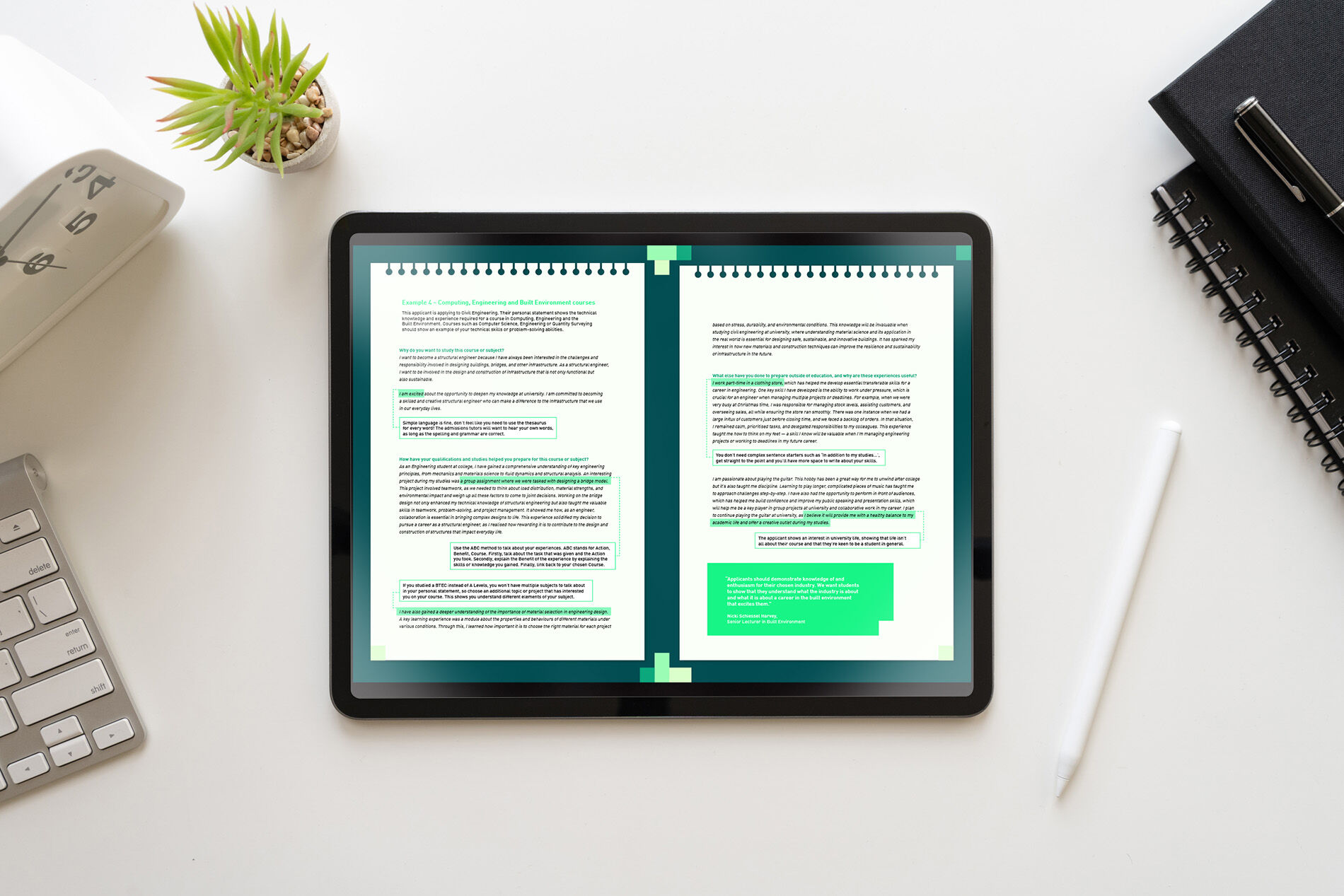You need to include as much relevant information as possible in your personal statement, but just making a list of your achievements isn’t enough. Using the ABC method to structure your examples will help you demonstrate why you’re the perfect person for your chosen course.
ABC stands for Action, Benefit and Course. Remembering this acronym will help you talk about your experiences to really sell yourself in your personal statement.
So what does ABC stand for?
Action = What have you done?
Benefit = What skills have you gained?
Course = How has this prepared you for your chosen course?
How can I use the ABC method?
You'll need to answer three questions to complete your personal statement:
1. Why do you want to study this course or subject?
2. How have your qualifications and studies helped you prepare for this course or subject?
3. What else have you done to prepare outside of education, and why are these experiences useful?
This is where you can start using the ABC method to turn your experiences and learning into clear, structured paragraphs that answer each question.
Using this method, you can show not just what you've done, but why it matters and how it connects to your course. Below are some excellent examples from our students to help you get started.
Example 1: Education
Action = In A-level Psychology, I studied core topics related to mental health, including Beck’s negative triad as an approach to treating mental health. I spent a lot of time researching this and completed wider reading as it affirmed my passion for mental health nursing.
Benefit = The wider reading allowed me to develop my knowledge of mental health conditions and treatments.
Course = This knowledge will improve my patient care whilst on placement and in my career. Completing wider reading has also prepared me for university assignments and inspired me to learn more through research.
Download your free personal statement guide
Be inspired by real personal statement examples from our students.
Example 2: Work experience
Action = I take part in Global Games Jams, working with others to create online games in a short time frame. I recently collaborated with a team of five people to create an online snooker game.
Benefit = As a result, I have developed my teamwork and communication skills.
Course = On the Computer Games Technology course, I’ll be confident when collaborating with others to complete group projects, using our individual strengths and knowledge to create the best game possible.
Example 3: Extra-curricular activity
Action = I’m a member of the debating society at college and participate in discussions on controversial topics and current affairs. I led an argument for the legalisation of euthanasia in the UK.
Benefit = I improved my research skills and used these to gather information that helped me form a coherent argument to use in the debate.
Course = Research skills are key to a law degree and career, they will help me complete university assignments, participate in moot courts and advocate for clients in a court of law.
As you can see from the examples above, these students have very different experiences, but they still find a way to link this back to their course.
What's next?
Take a look at the examples above and think about how you can talk about your experiences from school, work experience or extra-curricular activities in the same way. Before you know it, you’ll have lots of ABCs that you can turn into well-structured paragraphs.





